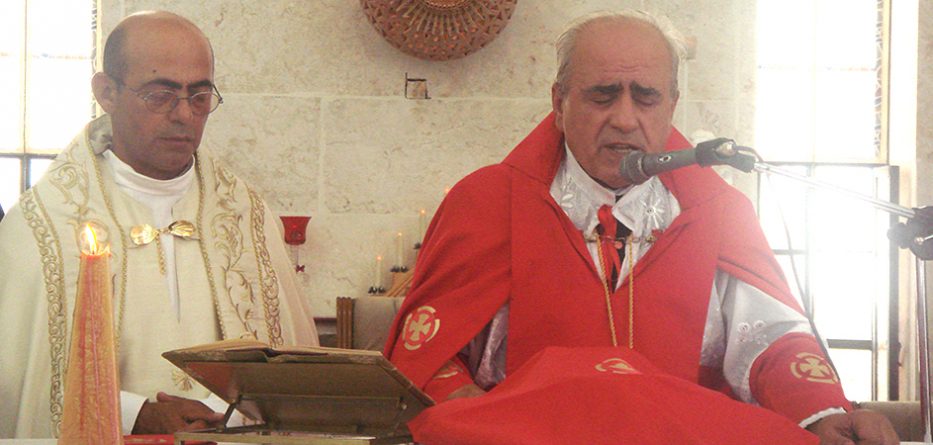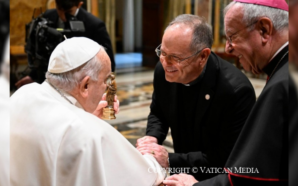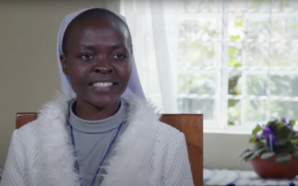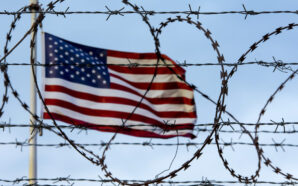After the fall of Bashar al-Assad’s regime, Syrian Archbishop Jacques Mourad of Homs shared his joy at seeing the Syrian people “liberated.” Despite the uncertainties surrounding these communities, this former ISIS captive remained resolutely optimistic about the future of Christians in Syria.
La Croix: How did you react to the fall of Bashar al-Assad’s regime December 8?
Archbishop Jacques Mourad: The rebels arrived in Homs (the third-largest city in Syria, about 100 kilometers from Damascus, and historically a stronghold of resistance to the Assad regime). Everyone in the city was in the streets to welcome them and celebrate this event. For Syrians, this is a historic moment, a turning point in our lives! At last, we are beginning to smell the scent of freedom. Since then, life has been gradually returning to normal. Shops are reopening, people have returned to work, and everything is functioning again.
The overthrow of the regime was led by Islamists. In 2015, you yourself were held captive for several months by Daesh jihadists. Do you trust them despite this?
These young people who overthrew Bashar al-Assad are not Daesh jihadists. They are among the 8,000 Syrians who were displaced by the regime during the war and spent 12 years growing up in refugee camps under tents. These young people want to be free now; they want the right to express themselves and are demanding that their rights be guaranteed with a functioning justice system.
On December 9, we met with the new authorities of Homs during a meeting organized with representatives of other religious minorities. They assured us that we are all part of the same people; that we are all equal. They guaranteed us freedom of worship and the continuity of our Christian schools. For me, our discussions were genuinely positive.
Many Christians have fled, deeply worried about their future. Do you share some of their fears? How do you try to reassure them?
Of course, there are Christians who are concerned. Some are frightened when they encounter soldiers with long beards and hair. Naturally, we are not immune to unpleasant surprises. It will likely take several weeks to fully grasp the implications of what is happening now. Christians have many traumas, but they share one with the entire Syrian population: the trauma of having had a president who bombed his own people, imprisoned his youth, and destroyed their homes.
For now, I want to remain positive. I trust in God and our Syrian people. We are men and women of faith, and I believe that this can be a key to living together. I encourage Christians to share this optimism and entrust our lives and history to God. Without this, we will never achieve any form of stability—though this stability will also depend, of course, on our neighbors: the Holy Land, Lebanon, and Iraq.
Do you believe Christians will have a unique role to play in rebuilding the country?
For now, everything is provisional. During our discussions with the new authorities, we were assured that Syrians would be able to vote within six to nine months for a constitution, followed by presidential elections. Minorities will then have a place and role in the new government. Under Bashar al-Assad’s regime, there were occasions when we had two Christian ministers, but the president’s absolute power limited their role. From now on, Syrian Christians will have the opportunity to contribute actively to the development of their country.
Reproduced with permission from La Croix International.








